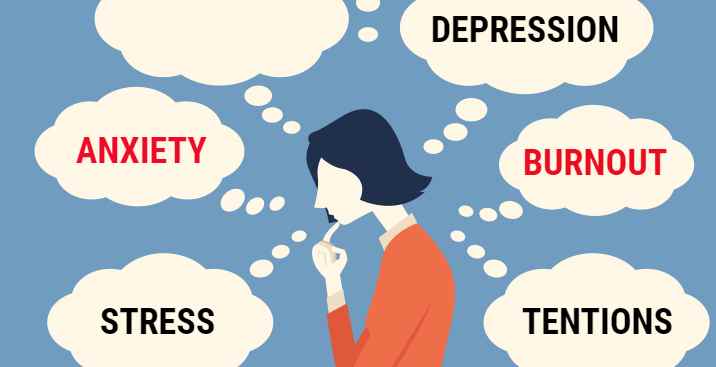Mental health is a vital component of overall well-being, yet it has often been shrouded in stigma and silence. The prevalence of mental health issues makes it an important topic to address openly and compassionately.
In this article, we’ll explore the significance of mental health awareness, the impact of stigma, and the importance of seeking help when needed.
The Importance of Mental Health
Mental health denotes a state of overall well-being where an individual can effectively manage life’s adversities, maintain productivity, and make meaningful contributions to their community.
It encompasses emotional, psychological, and social health, influencing our thoughts, emotions, and behaviors. Much like physical health is vital for overall wellness, mental health assumes a pivotal role in our lives.
The Prevalence of Mental Health Issues
Mental health challenges are widespread, impacting millions of people across the globe. As per the World Health Organization, depression stands as the foremost contributor to global disability, with anxiety disorders ranking among the most prevalent mental health ailments. Beyond depression and anxiety, conditions such as bipolar disorder, schizophrenia, and post-traumatic stress disorder profoundly affect people’s lives.
Despite their prevalence, mental health conditions have historically carried a stigma that often prevents people from seeking the help they need. This stigma is rooted in myths, misconceptions, and a lack of understanding about mental health.
The Impact of Stigma
Stigma surrounding mental health can have dire consequences. It may lead individuals to avoid seeking help, thereby exacerbating their conditions and delaying their recovery. Stigma also contributes to discrimination, isolation, and the perpetuation of negative stereotypes.
The repercussions of mental health stigma are extensive:
- Delayed Treatment: Stigma can discourage people from seeking professional help. They may attempt to manage their condition on their own or suffer in silence.
- Social Isolation: People with mental health issues may experience social isolation due to fear of judgment or discrimination. This can further exacerbate feelings of loneliness and despair. There are now services like GP at Hand which can allow people receive help without having to overcome leaving their homes first.
- Impact on Self-Esteem: Stigmatizing beliefs and attitudes can erode a person’s self-esteem and self-worth, making it even more challenging to recover.
- Limited Opportunities: Discrimination based on mental health can limit opportunities in education, employment, and social relationships. People may be unfairly judged and excluded from various aspects of life.
- Underreporting: The stigma associated with mental health contributes to the underreporting of mental health conditions in surveys and research, making it difficult to fully grasp the scope of the issue and allocate the necessary resources.
Breaking the Stigma
Eliminating the stigma surrounding mental health necessitates a collective endeavor characterized by empathy, education, and open conversation. The following steps are vital in this endeavor:
- Promote Education: It’s essential to promote awareness regarding mental health concerns and the significance of seeking assistance. Education can play a pivotal role in dispelling misconceptions and diminishing the stigma.
- Normalize Conversations: Encourage open and non-judgmental conversations about mental health. Sharing experiences and offering support can help to create a safe space for discussion.
- Challenge Stereotypes: Challenge and scrutinize stereotypes related to mental health. Each person’s experience is distinct, and mental health challenges can impact people from diverse backgrounds.
- Seek Professional Help: Mental health professionals are trained to provide the appropriate care and support. People often believe that they’re not “bad enough” or are afraid of appearing to be attention-seeking and avoid getting the help they need.
- Supportive Communities: Creating supportive communities where individuals feel understood and valued is essential. These communities can be formed within families, workplaces, schools, and social networks.
- Advocacy: Mental health advocacy is instrumental in challenging and changing policies, practices, and attitudes surrounding mental health. Support organizations and initiatives that promote mental health awareness and advocate for change.
- Self-Care: Prioritize self-care and emotional well-being. This includes regular exercise, a balanced diet, adequate sleep, and practicing relaxation techniques.
Seeking Help
It’s essential to recognize that seeking help for mental health issues is a sign of strength, not weakness. Here are some reasons why seeking help is crucial:
- Early Intervention: Seeking help early on can prevent the escalation of mental health issues and promote a timely recovery.
- Effective Treatment: Mental health professionals can provide appropriate treatment strategies, which may include therapy, counseling, medication, or a combination of these approaches.
- Support and Coping Skills: Therapy and counseling can equip people with effective coping skills, strategies for managing their symptoms, and the support needed to navigate challenging times.
- Improved Quality of Life: With the right treatment and support, people can achieve an improved quality of life, experience greater well-being, and engage in more fulfilling relationships and activities.
Related Articles:
Holistic Approaches to Mental Health
Uncovering the Roots of Addiction
Conclusion
Mental health awareness is a vital component of overall well-being and a topic that deserves open, compassionate discussion. The stigma surrounding mental health has hindered many people from seeking the help they need, but with education, understanding, and advocacy, we can break the stigma and create supportive communities where people feel safe to share their experiences and seek help when necessary.
If you or someone you know is struggling with mental health issues, remember that there’s help available, and recovery is possible. Seek the support of mental health professionals, reach out to supportive communities, and engage in open conversations about mental health. Together, we can foster a society where mental health is understood, valued, and prioritized, contributing to the well-being of individuals and communities alike.





